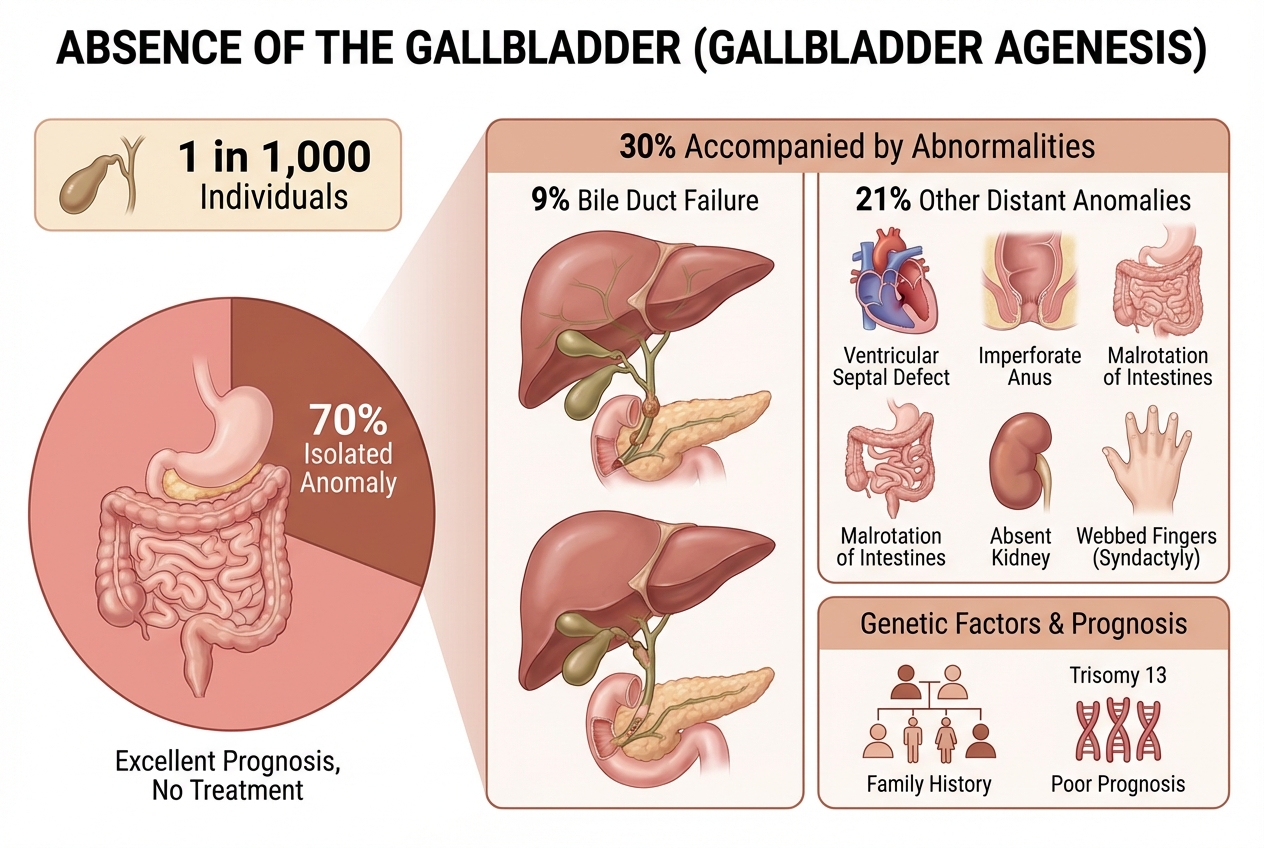
Absence of the Gallbladder:This condition, known as gallbladder agenesis, is the failure of the organ to develop and is found in about 1 in every 1,000 individuals. In over 70% of cases, gallbladder agenesis appears as an isolated anomaly, meaning the individual is generally healthy and requires no treatment, with an excellent prognosis. In the remaining 30% of cases, gallbladder agenesis is accompanied by other abnormalities. These can be divided into two categories: about 9% of cases involve a failure in the opening of the bile ducts, while the other 21% have normal bile ducts but exhibit other distant anomalies. These anomalies can include a ventricular septal defect (a hole between the heart's ventricles), an imperforate anus (absence of an anal opening), improper rotation of the intestines during development, absence of a kidney, and webbed fingers (syndactyly).Gallbladder agenesis typically occurs unpredictably without a known cause, but there are instances where it appears in multiple family members, hinting at a genetic form of the condition. Children who have gallbladder agenesis along with other distant anomalies often have trisomy 13 or another chromosomal disorder, which tends to lead to a poor prognosis.




